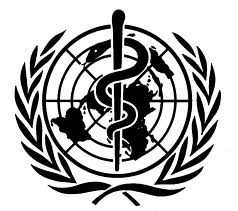 Kajal Bhardwaj and Cecilia Oh
Kajal Bhardwaj and Cecilia Oh
Report Prepared for UNITAID
World Health Organization
In recent years, the number of bilateral and regional trade negotiations has been increasing. Many of these negotiations involve both developed and developing countries, and the ensuing free trade agreements often contain extensive provisions on the protection of intellectual property rights. These provisions usually impose a higher level of protection for intellectual property rights than is required under the Agreement on Trade-Related Aspects of Intellectual Property Rights, or TRIPS Agreement. These so-called “TRIPS-plus” provisions delay generic market entry and competition. As such, they run counter to UNITAID’s efforts to increase the affordability of, and access to, medicines and other medical products.
TRIPS-plus provisions also limit or undermine developing countries’ policy options for legislating and using TRIPS flexibilities, even though safeguards and flexibilities were included in the TRIPS Agreement to enable governments to protect public interests, including access to medicines. This has led to concerns that TRIPS-plus provisions in free trade agreements will undermine public health safeguards and objectives—notably access to medicines. These concerns are particularly pertinent with regard to the negotiation of a Trans-Pacific Partnership Agreement, which has been positioned as a “model” for the 21st century—implying that the same or similar provisions are likely to appear in future trade agreements, including those involving developing countries.
Through this analysis of provisions that are proposed in the context of the Trans-Pacific Partnership Agreement negotiations, UNITAID seeks to better understand current and future issues in trade negotiations and their impact on access to medicines.
The present analysis is largely based on the text of the proposals of the USA that were leaked and made available in the public domain in 2011 and 2012. In November 2013, a more recent text became available (through Wikileaks). This more recent text shows not only the position and proposals of the USA but also the proposals of other countries participating in the Trans-Pacific Partnership Agreement negotiations. This text indicates that several countries involved in the negotiations have not agreed to many of the USA’s demands; the alternative language they propose is certainly preferable from the perspective of access to medicines. It also indicates that the USA appears to be reconsidering some of its problematic proposals, such as the prohibition of opposition prior to the granting of patents (pre-grant opposition).
Nevertheless, many other proposals remain substantially the same, and have the potential seriously to hamper access to medicines. Moreover, even those proposals that appear to be under reconsideration may resurface, whether in the Trans-Pacific Partnership Agreement or in future negotiations and agreements. Therefore UNITAID feels that it is worthwhile to publish and share this analysis, including the review of some provisions that may, for now, have been dropped or amended.
Click here for the full executive summary of the report (14 page PDF)




